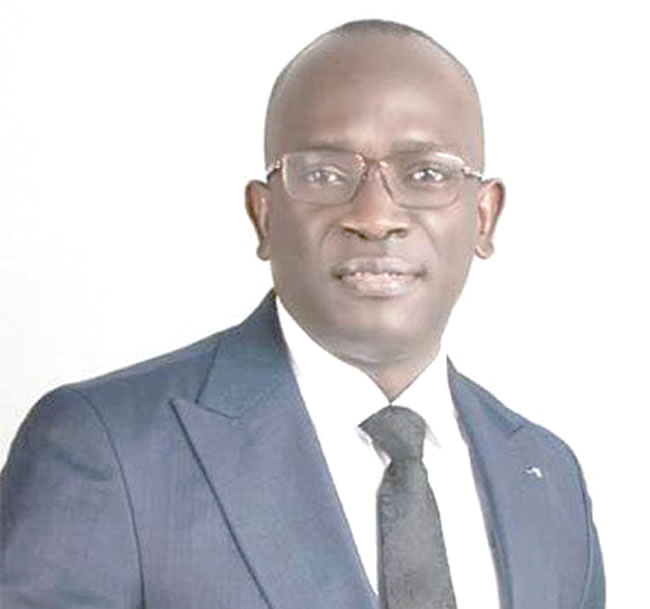Director-General of the Nigeria Employers Consultative Association (NECA), Mr. Adelewa Smatt-Oyerinde, in this interview, proffers solutions to Nigeria’s unemployment crisis and other pertinent economic issues. CHRISTIAN APPOLOS brings excerpts:
UNEMPLOYMENT Outlook in 2025 remains similar to 2024. What measures should the Government Take to asddress this situation?
Jobs don’t grow on trees; they are created. One of the key ways to generate employment is by enabling businesses, fostering the growth of SMEs and MSMEs, and creating an environment where skills development takes center stage.
The first step is for the government to continue enabling the private sector. We must ensure that we retain existing investments while making conscious efforts to attract new ones.
Secondly, the government should engage and support SMEs and MSMEs constructively. I want to commend the Ministry of Industry, Trade, and Investment for its proposal to conduct a nationwide census of MSMEs. This initiative will provide accurate data, allowing for better planning and targeted assistance. If we can significantly expand and empower the MSME and SME sectors, their potential for job creation will increase, thereby reducing unemployment.
Lastly, there is the critical issue of skills development. Our focus should not be solely on traditional educational pathways—universities, polytechnics, and colleges of education. We must expand technical skills development programs, similar to the NECA-ITF Technical Skills Development initiative. Deepening such efforts will ensure a multi-dimensional and concerted approach to tackling unemployment.
How would you describe the current economic growth outlook? Would you say there is progress?
At present, we are experiencing some stability. While we are not entirely out of the economic downturn, there have been noticeable changes in previously unpredictable factors.
For instance, forex has been relatively stable over the past few days, with the Naira hovering around N1,400–N1,500. This is a significant improvement from previous fluctuations, where it was difficult to predict whether it would rise to N2,000 or more overnight.
This newfound stability provides businesses with the opportunity to engage in short-term and medium-term planning. Stability fosters confidence, and when businesses can plan effectively, they contribute more to economic growth.
However, while we are making progress, we are not entirely out of the woods yet. Sustained reforms, the work of the tax reform committee—despite initial controversies—and various government interventions are gradually creating clarity.
Regarding forex, the Central Bank’s efforts to clear backlogs and address private sector concerns about forex funding are promising. If we successfully resolve these issues and get our refineries operational—thereby reducing the forex demand for fuel imports—the economic progress we anticipate will materialize. The question remains: Will this progress happen quickly enough? We hope so. But undeniably, there are positive signs.
The Proposed 50 per cent telecom tariff increase: How will it affect businesses, jobs, and the economy?
This issue is a double-edged sword. As business owners, companies must break even. If operational costs skyrocket, businesses must find ways to compensate, unless they are operating as social enterprises.
Telecom companies face their unique challenges. Rising production and operational costs naturally lead to increased service prices, and unfortunately, consumers bear the brunt of these costs unless the government intervenes with subsidies.
The telecommunications sector is one of the most competitive in Nigeria’s economy. Recall when one provider insisted per-second billing was impossible, only for a competitor to introduce it and disrupt the industry. The competition is fierce, and for telecoms to propose a tariff hike, it indicates severe financial strain.
It is commendable that the government has engaged organized labor in discussions. However, the real question is, how many MoUs and MoAs must we sign before addressing the fundamental issue: the high cost of doing business? That is the reality.
The NLC proposes a 5 per cent Increase Instead of 50 per cent. What Is Your View on This?
As a subscriber myself, a 5 per cent increase sounds preferable. However, the key issue is: Can telecom operators survive on such an adjustment? How will they pay salaries, maintain infrastructure, and service their equipment?
These are essential considerations. We cannot ignore the reality of business costs. While a lower increase is desirable, we must also ensure that businesses remain viable and continue to provide employment.
There are reports of foreign workers in Nigeria without work permits. What is your take on this and how is the Federal Government addressing it?
We have read the reports and acknowledged the Minister of Interior’s statement on the matter. If these claims are accurate, then it is absolutely wrong. No country should allow undocumented labor migrants to take jobs meant for its legitimate residents.
Look at what former President Trump did in the United States—he vowed to remove all undocumented immigrants. The same principle applies here. If foreign workers wish to contribute to Nigeria’s economy, they must follow the proper channels and regularise their status.
Nigerians working abroad comply with the immigration laws of their host countries. Similarly, any foreigner who wants to work in Nigeria must go through the legal process.
What specific measures should the government implement to address this issue?
For skilled labor migrants, the government should create a fast-track process to regularize their stay—provided their competencies are rare or unavailable in Nigeria.
However, for roles where local expertise is abundant, foreigners must go through the appropriate immigration channels. The government should establish a structured platform for such individuals to legalise their status while ensuring that Nigerian workers are not unfairly displaced.
You mentioned an upcoming event in Abuja. What is it about?
The event is called the National Labour Arbitration and Education Forum. It is a platform designed to bring together key players in the labor and industrial relations ecosystem.
We created this forum to promote industrial harmony, national economic growth, and Nigeria’s economic renaissance.
Dignitaries attending the event include the President of the Appeal Court of Nigeria, who will deliver the keynote address; the Director General of the International Labour Organization (ILO) as a special guest; the Honorable Minister of Labour and Employment; as well as the Senate and House Committee Chairmen on Labour and Employment.
The theme of the event is “Labour Adjudication and Appellate Jurisdiction.” Many labor disputes that originate in the National Industrial Court (NIC) often escalate to the Appeal Court, yet stakeholders in the labor community lack sufficient understanding of the appellate process.
This forum will bridge that knowledge gap. It will serve as a national platform for dialogue among NECA (representing employers), NLC and TUC (representing workers), the Ministry of Labour (representing the government), and all labor-related institutions—including the National Industrial Court, the Industrial Arbitration Panel, the Michael Imoudu National Institute for Labour Studies, and even the Nigerian Bar Association (NBA).
By bringing all these stakeholders together, we aim to foster deeper understanding, ensure smoother labor adjudication, and strengthen Nigeria’s industrial relations framework.
READ ALSO: Growing unemployment crisis among Nigerian graduates
WATCH TOP VIDEOS FROM NIGERIAN TRIBUNE TV
- Relationship Hangout: Public vs Private Proposals – Which Truly Wins in Love?
- “No” Is a Complete Sentence: Why You Should Stop Feeling Guilty
- Relationship Hangout: Friendship Talk 2025 – How to Be a Good Friend & Big Questions on Friendship
- Police Overpower Armed Robbers in Ibadan After Fierce Struggle






